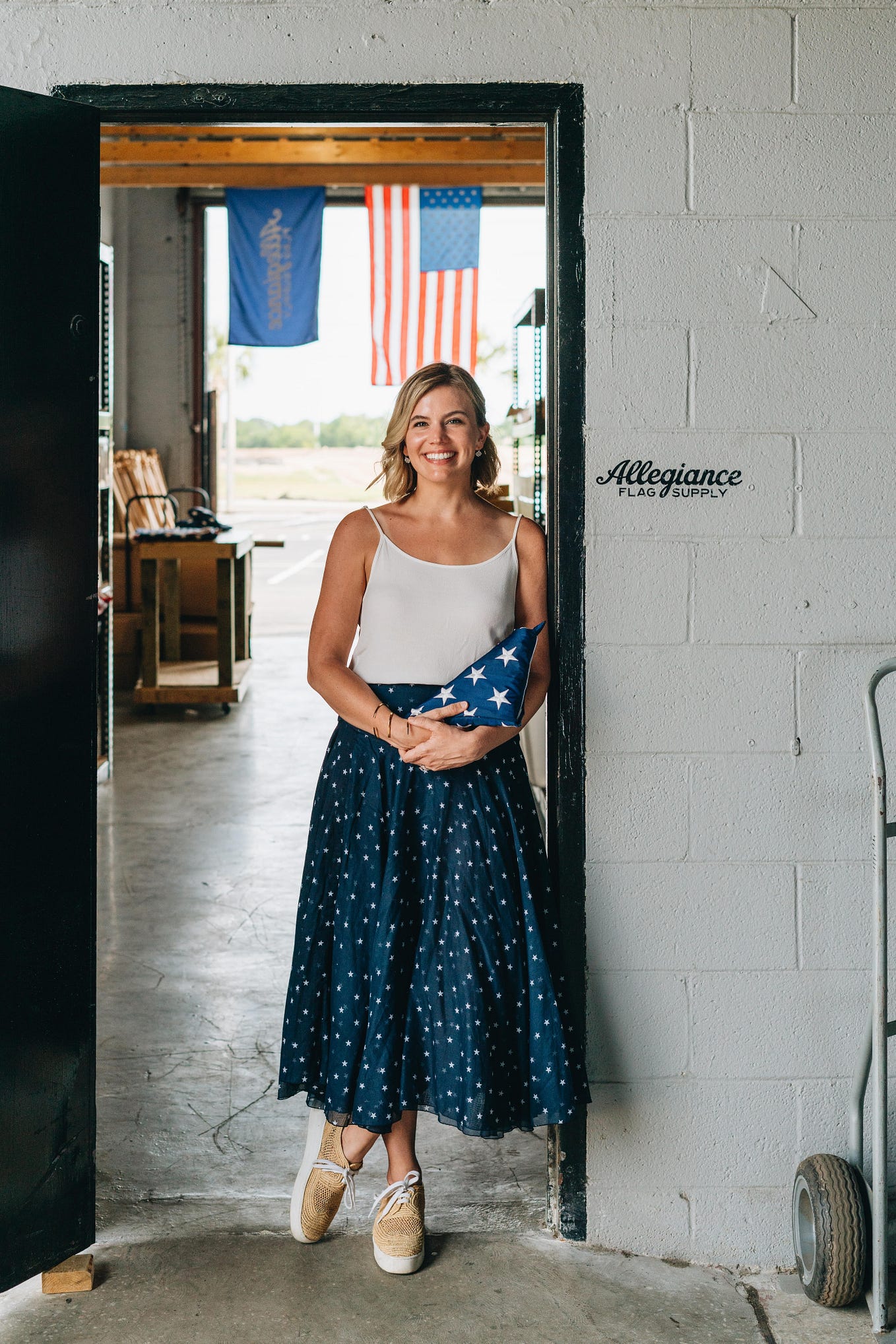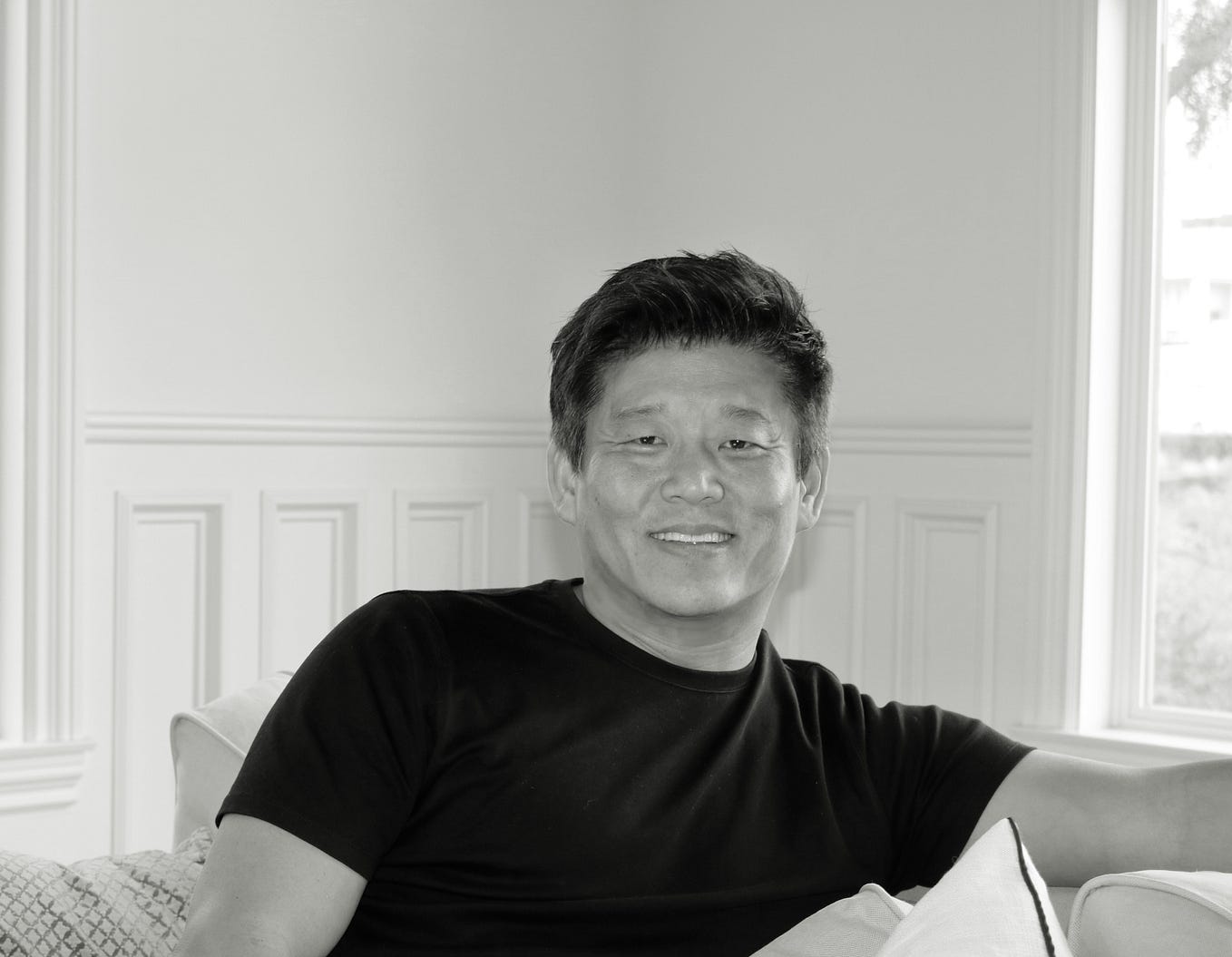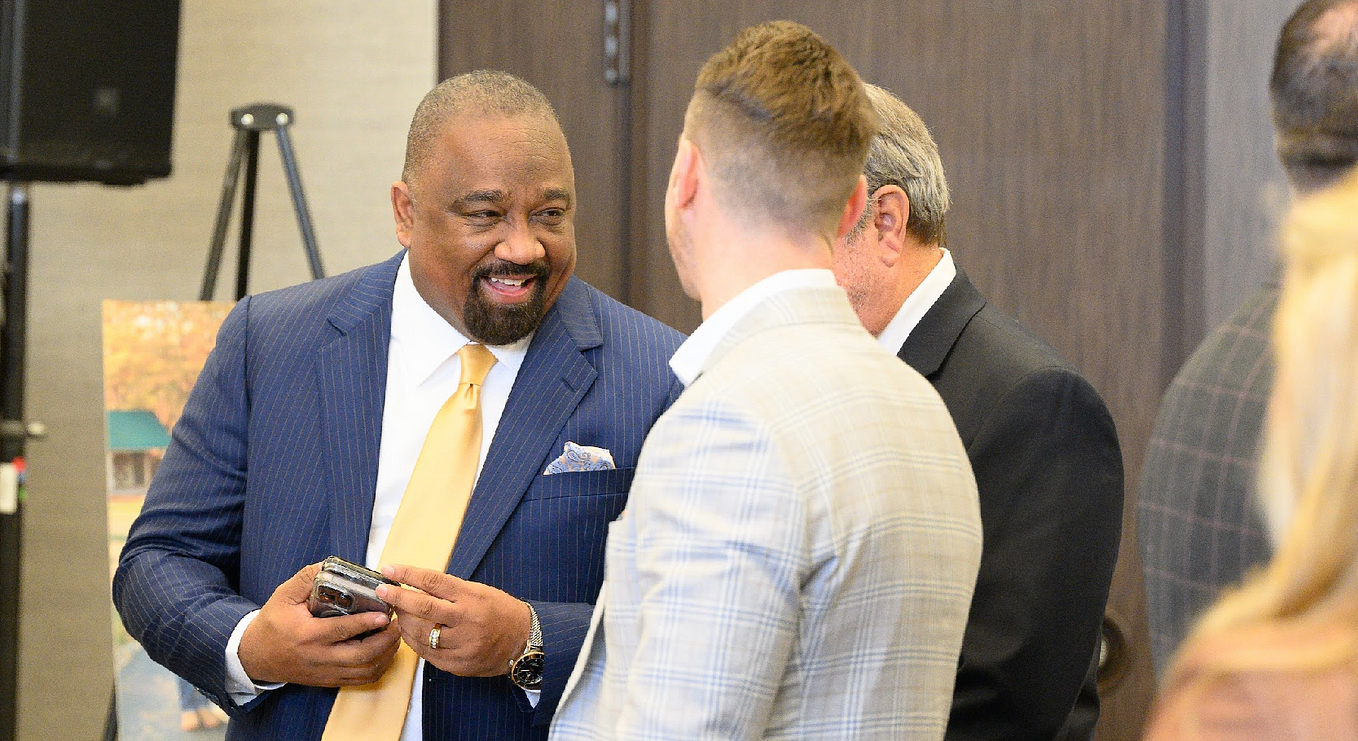Greg Munck of The Guide Soldier Foundation: Five Life and Leadership Lessons I Learned In The Military
Embrace the suck. Life can be tough, and we may find ourselves in unbearable situations. In the Marine Corps, they say “Embrace the suck.” This means pushing through tough times with determination and resilience instead of giving up or complaining. In the Gulf War, we not only embraced the suck but also breathed it in as Iraq destroyed 700 oil wells, turning the noon sun into dusk with oil mist all over our clothes. We called it “livin’ the suck.” No matter what happens, we have to keep going and embrace the suck.
As a part of our series about “Life and Leadership Lessons Learned In The Military”, we had the pleasure of interviewing Greg Munck.
Greg Munck is a combat-promoted Marine who served his country with honor during the Gulf War. He is also the accomplished author of the book, The Guide — Survival, Warfighting, Peacemaking. After completing his service in the military, Greg continued his career in the private sector as the Asia Pacific Regional Manager for Q-Logic Corporation.
After a call to pursue full-time ministry, he is now the lead pastor and co-founder of Crossline Church in Laguna Hills, California. Greg is a passionate advocate for military and veteran personnel worldwide and frequently travels to speak for The Guide Soldier Foundation, an organization dedicated to supporting active and veteran service members. Greg has been happily married to his wife, Kymbry, since 1992, and together they are proud parents of five children, some of whom have made appearances on television and in film.
Thank you so much for doing this with us! Can you tell us a bit about your childhood “backstory”?
Growing up, my family life was characterized by extreme dysfunction. My father was an alcoholic and drug addict who frequently found himself in and out of jail and ultimately, a homeless herion addict. One of the most traumatic experiences of my life occurred when I was just 15-years-old and had to knock out my dad so that he wouldn’t drive drunk. In total, he had been convicted of drunk driving fourteen times. Sadly, this was just one of many incidents that left me feeling scared and helpless.
I was introduced to cocaine at a shockingly young age — just 13 — when my father offered it to me for the first time. Another particularly terrifying memory involves a shotgun being held to my head when I was only 11 years old. My dad had stolen a Porsche from one of his drug-dealing partners, and one night, while I was on my way to the bathroom, I stumbled upon one of the men at the house protecting our family. In a fit of panic, he pinned me against the wall with his shotgun.
As a family, we faced countless hardships. We were evicted from our homes four times, and my mom had to work full-time to support my two brothers and me. The constant chaos and instability had a profound impact on me. I developed a fiercely independent attitude towards life and struggled to trust anyone. Seeking refuge from the chaos at home, I found myself spending more and more time at my friends’ houses. My purpose in life became centered around video games, sports, girls, and partying.
And what are you doing today? Can you share a story that exemplifies the unique work that you are doing?
As a leader of a large church, I have many responsibilities that keep me busy day to day. But there is nothing that energizes me more right now than the work I’m doing at my foundation, The Guide Soldier Foundation. I have the opportunity to guide the warriors among us towards hope and freedom on the frontlines of the soldier-veteran suicide crisis.
Recently, I had the privilege of meeting Tyson, a USMC combat veteran battling cancer and struggling emotionally and spiritually after four combat tours. Despite my own experience as a combat veteran, it was only recently that I had fully immersed myself in serving this community. But meeting Tyson was like throwing a fish into water. We shared similar crazy upbringings and combat experiences, and instantly understood and respected one another. I forgot I much I missed the esprit de corps
During our lunch together, I told Tyson about a free 5-day clinic in Tampa, Florida called the Be Resilient Combat Clinic. As the West Coast ambassador for this program, I have seen firsthand how it can transform the lives of combat veterans. The clinic, founded by special forces operator USAF combat controller Damon Friedman, is called SOF Missions (sofmissions.org). Through an interdisciplinary approach that focuses on psychological, physical, social, and spiritual well-being, the clinic equips veterans with the tools they need to establish resiliency and overall wellness.
Tyson decided to attend the clinic, and the transformation he experienced was nothing short of remarkable. Through the clinic’s four areas of focus — psychological, physical, social, and spiritual — Tyson was able to find healing, hope, and a renewed sense of purpose. His life has been transformed in ways he never thought possible.
As I continue to lead my church and work with the soilder/veteran warrior community, I am more committed than ever to bringing hope and healing to those who need it most. With programs like the Be Resilient Combat Clinic, we can make a real difference in the lives of our veterans and help them find a way forward towards a brighter future.
Can you tell us a bit about your military background?
After one semester of playing football in college in March 1989, I went to Marine Corps boot camp and graduated as honorman and guide of my platoon and company of six platoons. On December 1, 1990, I departed for the Gulf War aboard the USS Juneau, serving as an 01 attached to RLT-5, BSSG & 2/5 HQ. I held a top-secret clearance and received training in nuclear, biological, and chemical (NBC) detection, mapping, and response. My unit conducted clearing operations of the Al Wafrah Forest in Kuwait, and I was combat promoted for my actions. After the Gulf War, I continued to serve in the Marines until my honorable discharge in 1993.
Can you share the most interesting story that you experienced during your military career? What “take away” did you learn from that story?
One of the most interesting stories happened in the third phase of USMC boot camp. A platoon of 80+ recruits is led by a platoon leader (The Guide) and four squad leaders. I was handpicked by the DIs (drill instructors) to be the guide and had to motivate the recruits to do what the DI’s ordered. I also carried the platoon flag, called a “guidon,” which represented platoon 2025. Drill is an important part of boot camp, and as the guide I set the tempo and direction of the platoon as the DI calls out commands and sings cadence. The platoon working and stepping as one is really motivating.
One day, no matter what we did, the drill instructors were not happy. They stopped the platoon and made us button up their shirts, unroll our long sleeves, and un-blouse our pant legs. They also made me roll up the flag portion of the guidon and bind it with the blousing bands we used to blouse our pant legs. This was part of a plan to bring our platoon back to reality so we wouldn’t get too cocky as phase-three recruits. The DIs were going blastic on us yelling and cursing every famous DI saying there was.
The DIs decided to take us to the pit and the cadence rang out: “Going to the pit now!” The whole platoon ran to a large sandpit with deep fine sand. The DIs told us to spread out and directed me to shove guidon into the sand in front of the platoon. After twenty minutes, we were sweating and sand was in every orifice of our bodies. After 45 minutes, the lead DI finally yelled, “Stop! Stop! Aaa-ttennnn-tion!”
The drill instructor grabbed the guidon and held it high over his head, saying the platoon was an embarrassment to the United States Marine Corps, he brought it down as hard as he could on his knee. The guidon pole broke in half! Something broke in me. This had been a new life, a fresh start for me — this was my future. I was fully committed to my country, the Marine Corps, and my platoon. As the DI threw the two pieces of the guidon on the ground, I instinctively lunged for the flag and was told to stand at attention. The drill instructor yelled at me to lay down and put my head by the flag since I love it so much. He then yelled at the platoon to line up in a single-file line.
Then the drill instructor asked everyone to walk by the flag and spit on it! Believe it or not most of the platoon spat on the flag because they were afraid of what the DIs would do if they didn’t. The squad leaders and three other recruits were the only ones who did not spit on the flag. The other drill instructors pulled aside the ones who didn’t spit and continued working them in the pit.
Everyone came through, and after spitting on the flag, they got into formation behind the DIs. The DI then said, “Guide, stand at attention.” I stood up, already a little emotional because of the rage in me, and there was spit dripping all over my face and shirt. The head DI came up close to my face, and the other DIs lined up behind me.
The DI said in a powerful, soft, but direct voice. “Spit on the flag, guide.”
I stared at him with contempt and said in a passionate, strong, but not too loud voice, “No, sir!”
The DI was a little louder now. “What the hell did you say to me? I said spit on the flag, Guide!”
I was full of pride and passion. There was no way I was going to spit on the flag, no matter what they did. A little louder now, I said, “No, sir!”
Looking very upset with me, the head DI said, “Guide, I’m not playing around here! Spit on the flag!” The other DIs put their hands on my shoulders and put their knees on the back of my knees. Then forced me to my knees right in front of the 2025 platoon flag. Now on my knees, he said, yelling now, “Spit on the flag, guide!”
I was in tears, full of rage and pride. I yelled, “No, sir!”
Then he bent down toward me, with the other DIs pushing the back of my head. “I have given you a direct order, Guide! I will court-martial your sorry ass! Spit on the flag, guide!”
I was full of anger. I was so enraged that they were forcing me to do this. Tears were running down my cheeks. I yelled as loud as I could, “No, sir! I won’t spit on our flag, our platoon, our family, our corps, and our country! No, sir! I won’t spit on the flag, no matter what you do! No, sir, I won’t do it!”
He grabbed me by the chest with both hands and started to pick me up with the other DIs. He was excited, like a proud father. “That’s why you’re the Guide! That’s why you’re the Guide!”
I picked up the two pieces of our 2025 platoon flag. It felt like I had just scored a touchdown in the big game. I was so pumped up. The other DIs were patting me on the back. It was a moment for all of us.
The head DI went on to berate those who had not dared to stand up against the potential adversity they would have received from the DIs. As I stood there in front of the platoon, pacing back and forth in adrenaline and anger, I just pointed at all of them with the broken flag. I held up our guidon and said, “This is our flag! This is our family! OOH-RAAAAHHHHH!”
They all shouted as one: “OOH-RAAAAAHHH!”
On that day, I learned one of the most important lessons of all, that sometimes you need to stand up for what you know is right, rather than just follow orders and do what you’re told. When we stand up for what we believe in, we not only demonstrate our own integrity and strength of character, but we also inspire others to do the same. It is through our willingness to challenge the status quo and fight for what’s right that we can make a lasting impact and drive positive change in the world.
We are interested in fleshing out what a hero is. Did you experience or hear about a story of heroism, during your military experience? Can you share that story with us? Feel free to be as elaborate as you’d like.
Yes, I will never forget my Kuwaiti interpreter, who watched his sister being raped and his father being severely tortured in his house by Iraqis. When Iraq invaded Kuwait, he was a college student. He fled and volunteered his skills as an interpreter to the United States. He joined our unit the night before the ground war and I’ll never forget how nervous he was in an oversize uniform. He was thrown in with a group of hard-charging Marines who had been prepared for combat. Despite his fear, he wanted to be a part of freeing his family and his nation. That, to me, is what it means to be a hero.
Based on that story, how would you define what a “hero” is? Can you explain?
When I think of a hero, I think of someone who’s got guts. Someone who’s not afraid to face danger head-on, to put their own life on the line for the sake of others. That’s courage, that’s bravery, that’s selflessness.
A hero is someone who serves their country with honor, who protects their fellow soldiers with everything they’ve got, who would do anything to keep their loved ones safe from harm. It’s not just about doing your job, it’s about going above and beyond the call of duty.
A true hero takes risks, makes sacrifices, and does whatever it takes to get the job done, even when the odds are stacked against them. They’re the ones who rush in when everyone else is running away, who put themselves in harm’s way to save the lives of others.
And when the going gets tough, a hero is the one who steps up and takes charge, exhibiting extraordinary leadership even in the face of their own fears. Heroes come in all shapes and sizes, but they all have one thing in common: they’re willing to do whatever it takes to make a difference.
Does a person need to be facing a life and death situation to do something heroic or to be called a hero?
Being a hero isn’t just about facing down danger and saving lives. It’s about standing up for what’s right, even in the face of adversity. It’s about helping others when they need it most, whether it’s standing up to a bully or going out of your way to lend a hand to a stranger in need. That takes some real courage and compassion.
So whether you’re advocating for a cause you believe in, or sacrificing your own personal gain for the benefit of others, you’re a hero in my book. Because ultimately, heroism is about doing what’s right, even when it’s not easy. It’s about putting the needs of others before your own and showing true selflessness in the face of any challenge.
Based on your military experience, can you share with our readers 5 Leadership or Life Lessons that you learned from your experience”? (Please share a story or example for each.)
- Embrace the suck. Life can be tough, and we may find ourselves in unbearable situations. In the Marine Corps, they say “Embrace the suck.” This means pushing through tough times with determination and resilience instead of giving up or complaining. In the Gulf War, we not only embraced the suck but also breathed it in as Iraq destroyed 700 oil wells, turning the noon sun into dusk with oil mist all over our clothes. We called it “livin’ the suck.” No matter what happens, we have to keep going and embrace the suck.
- Lead by example. As a Marine, you’re expected to lead by example and set standards for others to follow through your actions and words. You must be willing to make tough decisions and do hard work, even if it means sacrificing your comfort or safety. Leading by example also means being a field commander in the trenches with your team, not asking them to do something you wouldn’t do. I learned this from day one in boot camp, as the platoon guide, where I paid for my team’s mistakes with bends and thrusts. The respect my platoon had for me was immense because they knew I would do anything for them. When your team knows you’re there for them, they’ll follow you anywhere, and that’s a recipe for success.
- Adapt and overcome. The Marines teach you to be adaptable and flexible in the face of changing circumstances, a valuable lesson in life. Learning to adapt and overcome challenges helps us achieve our goals even in the most difficult of circumstances. When something unexpected comes up during a mission, you have to pivot. When thousands of Iraqis surrendered, we quickly addressed the best way to interrogate and process them to continue our mission of clearing the Al Wafrah Forest in Kuwait. If you can’t adapt, you can’t overcome, and you won’t succeed.
- Pay attention to detail. In the military, attention to detail can mean the difference between life and death. This lesson applies to all areas of life because paying attention to the little things can make a big difference in achieving success. We train hard to get the details right so that when chaos hits, we can recover and respond faster than others. When a stray Iraqi mortar team sent rounds toward our unit, it was chaos, but we quickly found our bearings on a map and called in air support to neutralize the situation. Doing the little things well matters.
- Develop trust and work as a team. The Marines place a great emphasis on trust and teamwork. In combat situations, we must trust our fellow Marines with our lives, which requires building strong relationships and working together as a team. In life, we can learn from this lesson by building strong relationships with our friends, family, and colleagues and working together toward common goals.
Esprit de corps is one of the greatest things a team can have to ensure success. At the end of the day, I’m willing to give up my life because of the shared experience I have with my brothers next to me. When you have that, nothing can stop you as a team. You win together or die together.
If you embrace these five leadership life lessons, you and your team will succeed.
Do you think your experience in the military helped prepare you for business? Can you explain?
Absolutely, I would not have been as successful in business without the military preparing me. Everything I learned helped me to be confident and assertive in every business situation.
Confidence helps me to build trust with others, make better decisions, and take calculated risks that lead to greater success. Assertiveness allows me to communicate my needs, opinions, and ideas effectively, while still respecting the needs and opinions of others.
As you know, some people are scarred for life by their experience in the military. Did you struggle after your deployment was over? What have you done to adjust and thrive in civilian life that others may want to emulate?
As a combat veteran, I returned home with a set of challenges that many of my fellow soldiers can relate to. The nightmares, bad memories, and triggers that sent me straight back to the battlefield were just a few of the issues that plagued me. Avoiding any discussion or reminder of what I went through, struggling to concentrate, and overreacting were also common. But I didn’t think too much about it at the time because I believed all combat veterans had to deal with the same issues, and I didn’t consider myself special.
The real problem is that once we leave the military, we often lose our sense of purpose and mission. This, combined with the fact that most veterans tend to isolate themselves and disconnect from those they served with, is a dangerous combination. Post-traumatic stress disorder (PTSD) and loneliness are taking a significant toll on our warrior community, with more than 22 deaths per day, which is unacceptable.
I remember feeling isolated, but I was fortunate to have the support of my wife Kymbry and my newfound faith to guide me down a healthier path as I processed what I had experienced. It took me 16 years after the Gulf War to finally seek help from the VA and receive a 50% service-connected disability.
I want to emphasize that faith is something that I believe others should adopt without hesitation. Several medical studies have shown that faith helps veterans process trauma. Dr. Harold G. Koenig, a professor of psychiatry and behavioral sciences at Duke University Medical Center, conducted a well-known study on this topic, which was published in the Journal of Nervous and Mental Disease in 2004. The study revealed that veterans with high levels of religious involvement had better mental health outcomes than those without.
Another study conducted by researchers at the University of Missouri, which was published in the Journal of Religion and Health in 2013, found that veterans with high levels of spirituality had lower rates of depression, anxiety, and PTSD symptoms than those with lower levels of spirituality. The study suggested that spiritual beliefs could provide a sense of purpose and meaning that helped veterans cope with trauma.
A third study, published in the Journal of Traumatic Stress in 2016, found that veterans with high levels of religious and spiritual coping had better mental health outcomes than those without. The study, conducted by researchers at the University of Utah, suggested that religious and spiritual coping strategies could offer a sense of hope and resilience that helped veterans overcome trauma.
These studies highlight the potency of faith as a tool for veterans struggling with the psychological effects of combat. Faith can provide meaning, purpose, and resilience, which can aid in coping with trauma, recovery, and healing. If it works for veterans, it can work for anyone.
To my fellow veterans, there is always someone in more need than you, but that does not mean you can neglect taking care of yourself and not take advantage of the proven tools to assist you in processing trauma. If you require assistance, advice, or guidance, please do not hesitate to email me today at greg@gregmunck.net
Are you working on any exciting new projects now? How do you think that will help people?
On May 9th, 2023, my book “The Guide: Survival, Warfighting, Peacemaking” will be released. It is a powerful and emotional memoir that takes readers through my life, a journey filled with extreme hardships and overwhelming odds, leading me to discover my truest purpose and the bravery to face and overcome my biggest emotional and spiritual battles.
From growing up with a drug-addicted father to becoming a decorated combat Marine and successful businessman, I share my inspiring and deeply personal stories of struggle, perseverance, and faith. Through my experiences, readers can learn valuable lessons about the true significance of life and the power of resilience in the face of adversity.
This book is a poignant and honest reflection on the complexities of human experience and a testament to the strength of the human spirit. Whether you are a veteran, a person of faith, or simply someone looking for inspiration and guidance in navigating life’s challenges, “The Guide: Survival, Warfighting, Peacemaking” is a must-read.
Another projcet I’m excited about is my partnership with EveryMan to record a 5-week video series on “The Guide’’ for soldiers and veterans. As a soldier, I know that a soldier’s identity, growth, surrender, purpose, and worth are crucial elements that determine the kind of soldier one becomes.
We all strive to be good and faithful soldiers, and we understand the consequences of the opposite. What guides us ultimately shapes our character and the kind of soldier we become.
What advice would you give to other leaders to help their team to thrive?
As a leader, one of the most important things you can do is speak truth in love. I’m writing a book on this very subject called The Lost Art of Speaking Truth. In today’s world, it’s all too easy to sugarcoat things or tell people what they want to hear, especially in a cutthroat business environment. But, this is a recipe for disaster. If you want to build trust, foster respect, and create an environment where your team can thrive, you need to be direct and honest with them.
Speaking truth allows us to communicate openly and effectively, address challenges head-on, and solve problems collaboratively. It also demonstrates integrity and transparency, which are crucial for building strong relationships. Sure, it may be uncomfortable or even scary to speak your mind, but trust me, it’s worth it. When you speak truth in love, you create a culture of honesty, vulnerability, and resilience that can weather any storm. So let’s be brave, let’s be bold, and let’s speak truth in love. Semper fi!
What advice would you give to other leaders about the best way to manage a large team?
In the Marines, we know that everything starts with the individual. As said in the movie Remember The Titans, “Attitude Reflects Leadership … Captain!” So, as a leader, it’s essential to set the tone by demonstrating a positive attitude and lead by example.
To be an effective leader, you must establish clear, ambitious, and measurable goals that inspire your team to strive towards a shared vision. To create a strong team culture that values collaboration, innovation, and continuous improvement, you must encourage open communication, create an environment where ideas are welcomed, and provide constructive feedback.
Your team’s success should be your top priority, so make sure to provide them with the resources and support they need to achieve their goals and remove any obstacles in their way. And, always remember to celebrate your team’s accomplishments and acknowledge the individual contributions that made it possible.
We know that effective leadership is the foundation for success, and by following these principles, you can cultivate a team culture that fosters excellence, camaraderie, and a relentless commitment to achieving the mission.
None of us are able to achieve success without some help along the way. Is there a particular person who you are grateful towards who helped get you to where you are? Can you share a story about that?
My wonderful wife Kymbry, you have been the living embodiment of God’s love in my life. Your unwavering affection and devotion have been a source of strength and sustenance for me. I am grateful for the depth of your love, which surpasses any other love I have known. You are a true blessing in my life.
How have you used your success to bring goodness to the world?
I am incredibly grateful for my life, my loved ones, and all the blessings that God has given me. Through the good times, the bad times, and everything in between, I find contentment and live with a deep sense of gratitude. Having discovered the true meaning of life, I am committed to a life of service. Whether it is through my involvement in my church or my work on the frontlines of the soldier and veteran suicide crises, I am dedicated to making a positive difference in the lives of others.
You are a person of great influence. If you could inspire a movement that would bring the most amount of good to the most amount of people, what would that be? You never know what your idea can trigger. :-)
In addition to the greatest commandment of loving the Lord your God with all your heart, soul, and mind, and loving your neighbor as yourself, I believe that if each of us were to buy a drink or a meal, or even pay for someone’s groceries once a week, and take a moment to strike up a conversation and ask them how they are doing, it could make a significant impact on the world. Additionally, I strongly support a bill in Congress that would exempt combat veterans who have fought for our country from paying taxes for the remainder of their lives.
Can you please give us your favorite “Life Lesson Quote”? Can you share how that was relevant to you in your life?
“It’s not about how hard you hit. It’s about how hard you can get hit and keep moving forward.” — Rocky Balboa
It’s the story of my life and a mantra for me. Along with that my life verse is Psalm 40:1–5
Some of the biggest names in Business, VC funding, Sports, and Entertainment read this column. Is there a person in the world, or in the US with whom you would love to have a private breakfast or lunch with, and why? He or she might just see this if we tag them :-)
I’m intrigued by emerging technologies and would be fascinated to hear about Elon Musk’s current projects, both public and private. It would be interesting to know his perspective on DARPA and the technologies they are currently exploring. As a person with considerable resources, he has the potential to make a significant impact in the lives of soldiers and veterans.
Thank you so much for these amazing insights. This was truly uplifting.









